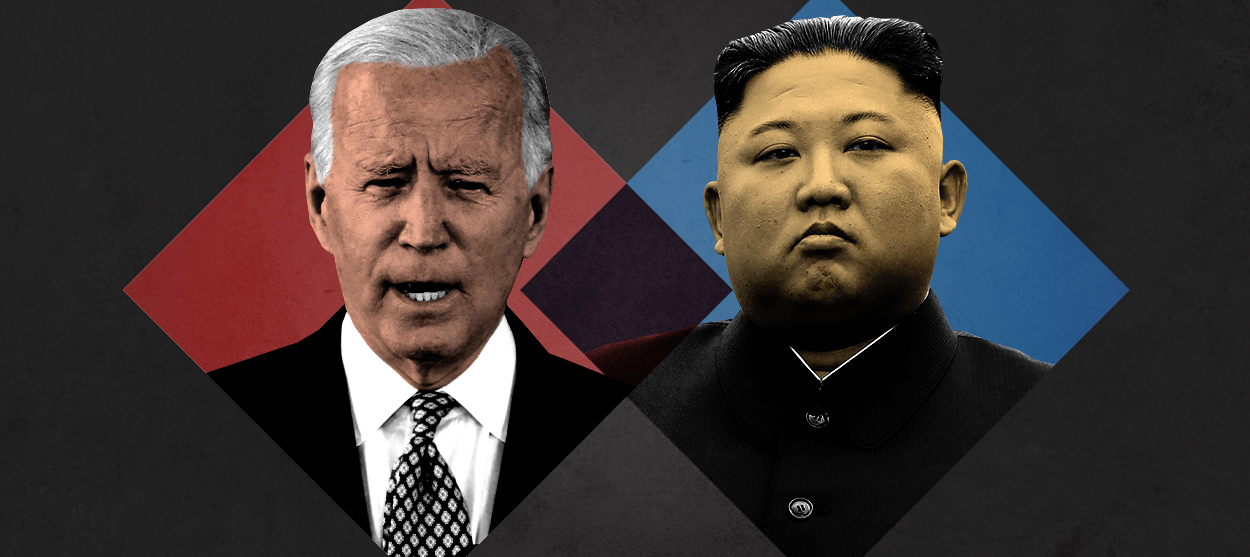How Biden can truly differentiate his North Korea policy


A free daily email with the biggest news stories of the day – and the best features from TheWeek.com
You are now subscribed
Your newsletter sign-up was successful
North Korea tested short-range missiles this past weekend, The Washington Post reported Tuesday, a move seen by many as a provocation of the new Biden administration. President Biden has yet to announce a comprehensive policy toward North Korea, but the State Department — and the Post story — are teasing the forthcoming posture as distinct from "President Donald Trump's top-down approach of meeting directly with Kim Jong Un and President Barack Obama's bottom-up formulation, which swore off engagement until Pyongyang changed its behavior."
That's welcome news, as is Biden's appropriately measured response to the missiles. But it's difficult figure out what the promised distinction could be. Trump and Obama's approaches differed greatly in style, but their substantive demand of the Kim regime was the same: Completely denuclearize, then perhaps we can think about possibly lifting some of our sanctions. Biden's campaign suggested this is his position, too. At the last presidential debate, he said he'd only meet with Kim after he agreed to "drawing down his nuclear capacity."
Here's the problem with the denuclearization-first approach: It won't happen. North Korea has been incredibly clear about this. Pyongyang's (not unreasonable) belief is that if their nuclear arsenal is surrendered, the U.S. will force a regime change, deposing and perhaps executing Kim. Their evidence? We just did it in Iraq and Libya, two other cruel dictatorships without nukes.
The Week
Escape your echo chamber. Get the facts behind the news, plus analysis from multiple perspectives.

Sign up for The Week's Free Newsletters
From our morning news briefing to a weekly Good News Newsletter, get the best of The Week delivered directly to your inbox.
From our morning news briefing to a weekly Good News Newsletter, get the best of The Week delivered directly to your inbox.
If Biden really wants to chart a new course, then, he must reorient his perspective on denuclearization. Is it desirable? Of course! But it's not achievable for the foreseeable future. Making it a precondition of productive U.S.-North Korea engagement precludes productive engagement. Denuclearization should be the long-term goal, the pinnacle of a gradually normalized relationship reinforced by more restrained U.S. foreign policy.
In the near term, Biden should dramatically lower his expectations and seek concessions Pyongyang might actually make. Nuclear freeze is a great option. So is a peace treaty for the Korean War and humanitarian gains for the North Korean people. Biden won't personally get the big win. This could take decades of patient negotiations with lots of setbacks. But maybe after all that, denuclearization will be on the table.
A free daily email with the biggest news stories of the day – and the best features from TheWeek.com
Bonnie Kristian was a deputy editor and acting editor-in-chief of TheWeek.com. She is a columnist at Christianity Today and author of Untrustworthy: The Knowledge Crisis Breaking Our Brains, Polluting Our Politics, and Corrupting Christian Community (forthcoming 2022) and A Flexible Faith: Rethinking What It Means to Follow Jesus Today (2018). Her writing has also appeared at Time Magazine, CNN, USA Today, Newsweek, the Los Angeles Times, and The American Conservative, among other outlets.
